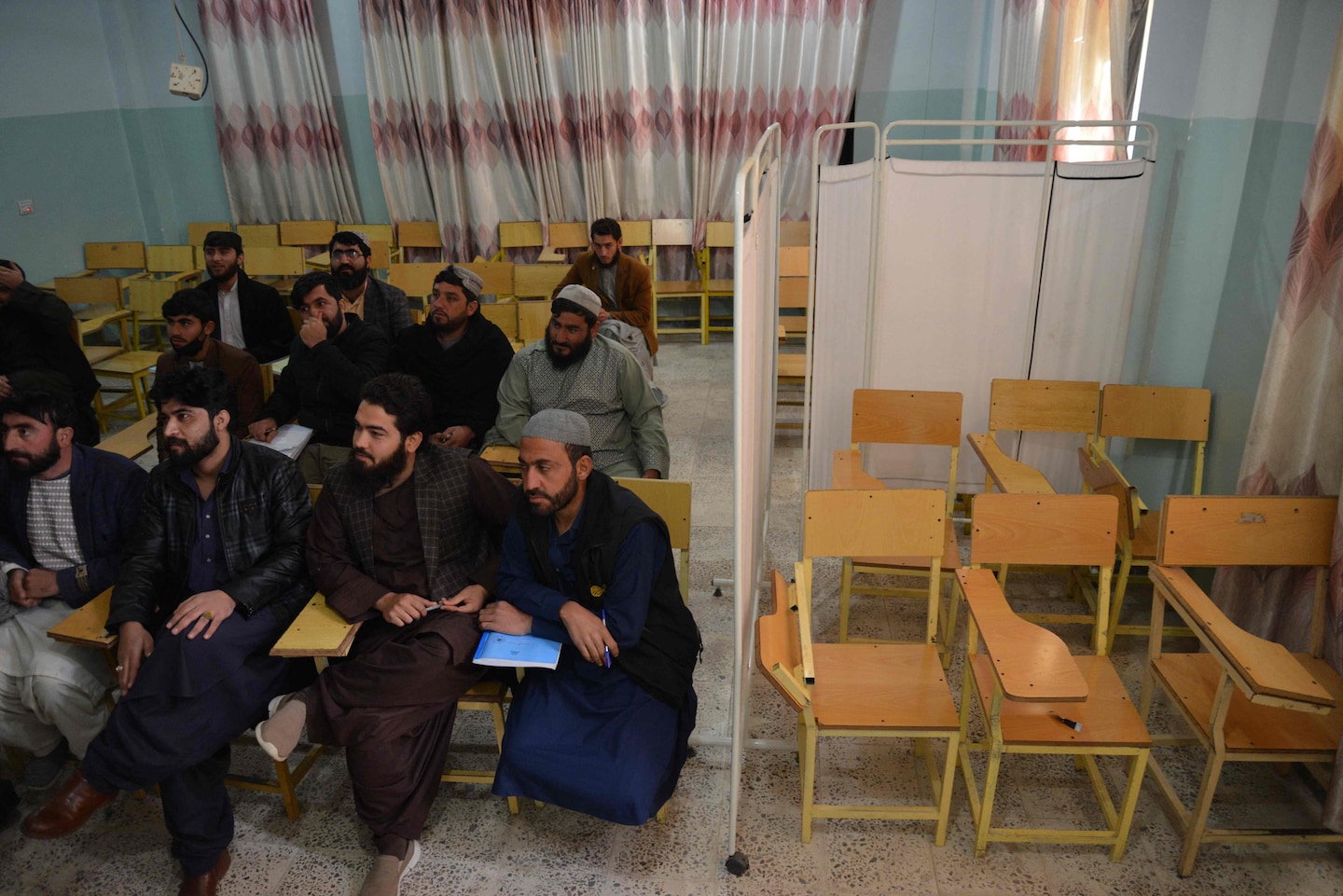The decision to ban women from public and private universities came following a meeting of Taliban leadership and represented the latest move by the country’s religious rulers to roll back women’s rights and flout international demands that human rights be respected. The ministry did not immediately respond to requests for comment about the status of primary education for Afghan girls.
“All I see ahead of us is a dark future that is getting closer and closer every day,” said a history student at Kabul’s Education University who, like others interviewed for this report, spoke on the condition of anonymity for fear of reprisals.
The 20-year-old history student said she hopes the Taliban would reconsider the ban before most public university students return from winter break next year, but she worries the move is a sign that the Taliban movement will treat women the same way it did when it last controlled most of Afghanistan in the 1990s.
At that time, women were barred from education at all levels, forced to conform to a strict dress code in public, banned from working and were not allowed to leave their homes without a male guardian. When the Taliban took control of Afghanistan last year after the U.S. withdrawal, many believed the group would rule with more leniency, but Taliban policies on the rights of women, free speech and other human rights have only become increasingly strict over the past year.
With the ban on university attendance, nearly all Afghan women above the age of 12 are now barred from formal education. Most women were formally banned from secondary schools this year in a surprise policy reversal that stoked nationwide protests.
Thousands of women across the country are expected to be affected by the university education ban, especially in urban areas where most Afghan universities are located. In Kabul, women trying to attend private universities were turned away Wednesday morning, according to interviews with students.
At one university, professors who allowed women to sit for their final exam of the year were rounded up and brought to a local police station by Taliban security forces, according to a student who was present.
Restrictions on access to education are expected to have a ripple effect, further limiting the ability of Afghan women to participate in the workforce and other aspects of public life.
“As a woman, I am only expecting worse and worse rulings,” the history student said. “We were anticipating these days, and now the Taliban have proven with their actions that women mean nothing to them.”
As Taliban officials have pushed for international recognition, they have faced key demands from the United States, United Nations and other Western countries that Afghanistan ensure greater respect for women’s rights and expanded access to education for women and girls.
But despite this international pressure, Taliban policies have steadily restricted the rights and freedoms of women.
“It feels like the Taliban are making it a crime to be a woman,” a 20-year-old psychology student at Kabul University said of Tuesday’s ruling. She said the reaction among her fellow students ranged from anger to hopelessness. “What did we do wrong?” she asked.
She warned that the ban would not only hurt women, but would aggravate the country’s economic crisis as women drop out of the workforce. “If women are eliminated from society, Afghanistan will collapse,” she said.
While conditions for Afghans continue to deteriorate, the United States has secured a handful of diplomatic victories from talks with the Taliban by securing the release of detained Americans. Most recently, two Americans were released by the Taliban on Tuesday after being held for weeks. One man held was a filmmaker detained over the summer after filming in the area where a U.S. drone attack killed the leader of al-Qaeda.
The Biden administration welcomed the release but also leveled harsh criticism at the education ban. Thomas West, the special representative for Afghanistan, warned in a tweet that the ban was “indefensible” and called on the world to unite in opposition to the policy.
West and other U.S. officials meet regularly with the Taliban to discuss international recognition, counterterrorism, humanitarian aid, Afghanistan’s foreign reserves and sanctions, in addition to human rights and the rights of Afghan women.
The central issues of U.S. recognition and sanctions remain unresolved, and the Taliban continues to tighten its crackdown on human and civil rights.



